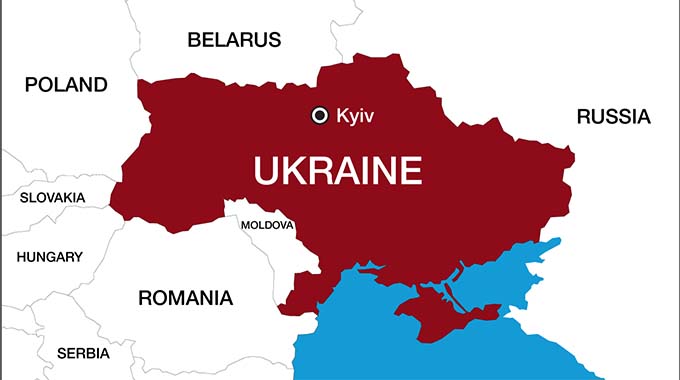Ukraine crisis pushing nations into slow down

Gibson Nyikadzino
Herald Correspondent
The disruption of the global food supply chains, the rising cost of basic commodities and soaring energy prices triggered by the conflict in Ukraine is pushing economies into slow down, the World Bank announced.
In its April 2022 outlook report, the World Bank said the global economic growth forecast that stood at 4,1 percent in January, is expected to slump from the 2021’s 5,7 percent growth to 2,9 percent by year-end since the February 24 special military operation by Russia in Ukraine.
In the next 12 months, the World Bank estimates that the consequences of the operation will leave many countries unable to service their debts, due to the ongoing tensions.
As world governments aim to bring the cost of living down, economists say containing inflationary pressures without pushing economies in slowdown will be difficult. Besides, the Covid-19 pandemic has also slowed down major economies. China’s GDP has slowed down because of the Covid-19 pandemic, leading to major industrial losses due to strict lockdowns.
In Germany, the world’s fourth biggest economy and other parts in the Americas, Europe and the Middle-East, households continue to suffer a cost of living crisis, as a result, the unfolding east European events have continued to push the world energy and food prices beyond the reach of many, including those in Africa.
According to the Food and Agriculture Organisation’s (FAO) Food Price Index, there have been significant changes in the price of basic commodities increasing by 12,6 percent from February to March as a result of the conflict.
The conflict has also added to mounting concerns of a sharp global slowdown, surging inflation and debt, and increasing poverty levels likely to trigger an inevitable global recession.
The United Nations (UN) has warned that the developments happening in eastern Europe are exposing 107 countries, which account for an estimated 1,7 billion people or a fifth of the world’s population, to severe economic consequences that are threatening civil unrest.
Twenty-five African countries are already feeling the bite with Egypt, Africa’s biggest importer of wheat from Russia and Ukraine, saying its stocks are running out.
Other countries like Tunisia are experiencing a trade deficit of US$800 million and being pushed into a huge financial crisis with a record increase in fuel prices.
In Europe, 19 countries that use the euro currency have recorded a soaring inflation at 8,1 percent for March and April. The continent of 343 million people has also witnessed a 39,2 percent increase in energy prices making life in Europe more expensive.
“Energy inflation is likely to remain higher for longer than previously expected,” said the European Union’s (EU) chief economist Andrew Kenningham.
Zimbabwe, whose economy was projected to grow by 4,4 percent in 2022 by the International Monetary Fund (IMF), has been revised downwards to 3,6 percent due to the global tensions which have affected and disrupted the global supply chains, which has seen the price of fuel shooting up.
Finance and Economic Development Minister Prof Mthuli Ncube in his 2022 budget projected a 5,5 percent economic growth, but has now been revised to 4,6 percent.
Even so, energy prices have significantly risen. Russia supplies 19 percent of the world’s natural gas and 11 percent oil. Crude oil prices have increased from US$77 per barrel in December last year to as high as US$129 per barrel, similarly to fertiliser prices.
The current global energy prices are putting pressure on the energy market.
The cost of fuel in Zimbabwe since February 24 has significantly increased from US$1,44 for both diesel and petrol in February, to US$1,51 for the same and currently at US$1,76 for diesel and US$1,73 for petrol.
Said Prof Ncube: “The economy has been experiencing sustained inflationary pressures especially during first half of 2022. Headline inflation steadily accelerated from 60,7 percent in January to 131,7 percent in May 2022.
“This has been driven partly by external factors, particularly Russia-Ukraine conflict, which impacted negatively on import prices of raw materials, food and liquid fuels.”









Comments